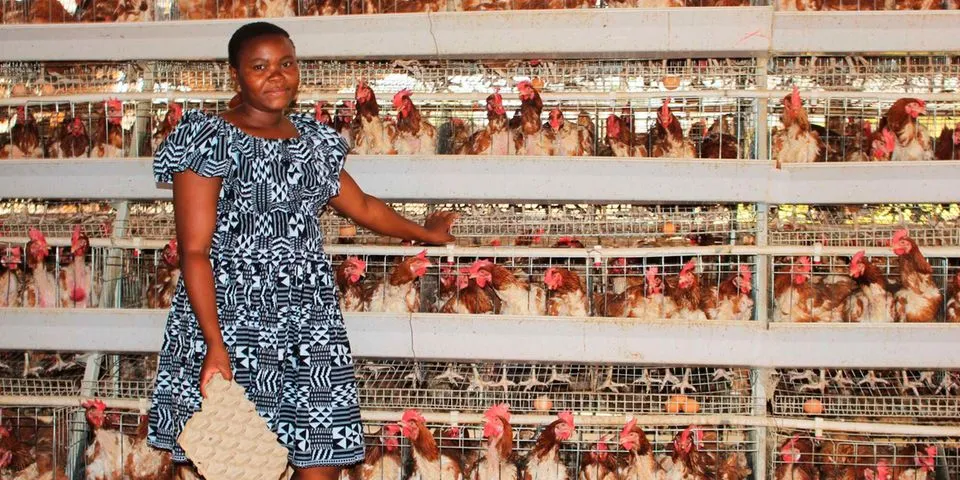Anna Ndunda’s poultry farming empire boasts an intricate battery cage system, offering a glimpse into her meticulous management of the chicken farm and underscoring her dedication to the poultry business.
She emphasizes that this system is instrumental in ensuring the collection of clean eggs.
“The cage system enables us to monitor the health and productivity of individual birds. This allows us to take appropriate action, such as isolating sick birds. More importantly, the battery cage system enhances efficiency in feed and water use by minimizing wastage,” she explained in a previous media interview.
During a local media interview, Ndunda elaborated on her process, starting with sourcing day-old chicks from certified dealers in Nairobi. These chicks are placed in a brooder powered by specially designed pots running on charcoal. They undergo a vaccination regimen against common diseases.
“We stock Issa Brown, a hybrid chicken known for its high egg production. Chicks are transferred from the brooder to the cages at three months old. They start laying eggs at 18-20 weeks and continue until they are 18 months old,” she shared with Seeds of Gold in a past interview.
Initially, Ndunda kept chickens for meat and eggs using the deep litter system in a small-scale venture that struggled due to lower profitability. Her fortunes changed after visiting President William Ruto’s chicken farm in Sugoi, Uasin Gishu County.
There, she learned about the cage system, the importance of clean water, high-quality feeds in chicken production, and the gradual introduction of growers’ mash to chicks.
With 1,500 layers, Ndunda stands as one of the largest chicken farmers in the county. She collects 43 trays of eggs daily, which wholesalers purchase from her farm and distribute to individuals, restaurants, and hotels in Wote Township. Customers appreciate the size and cleanliness of the eggs, qualities attributed to the battery cage system.
Despite her substantial output, Anna’s 43 trays of eggs per day fall short of meeting the local demand, indicating the profitability of investing in this business.
In a semi-arid region often plagued by drought and crop failure, Anna identifies water and feed as her primary challenges. She spends Sh. 11,000 daily on commercial feeds and Sh. 10,000 monthly to buy water. Ndunda plans to expand her stock to 10,000 birds and intends to establish an additional revenue stream by creating a model farm open for poultry farming and egg production training.
Nicholas Muyale, the chairman of the Kenya Veterinary Association, highlights that feed accounts for 70% of egg production costs in Kenya.
This cost factor makes Kenyan eggs less competitive compared to imports from Uganda. He advises poultry farmers to adopt new technologies, such as using Black Soldier Fly maggots, to reduce feed production costs and enhance the profitability of egg production ventures.


1 comment
Quite an interesting venture.
I got solution on how she can automate her farm completely and also starting a Black soldier fly colony.
Kindly reach out through my email : geraldkyalo@gmail.com or contact me through :0793606118 for further details.
Thankyou